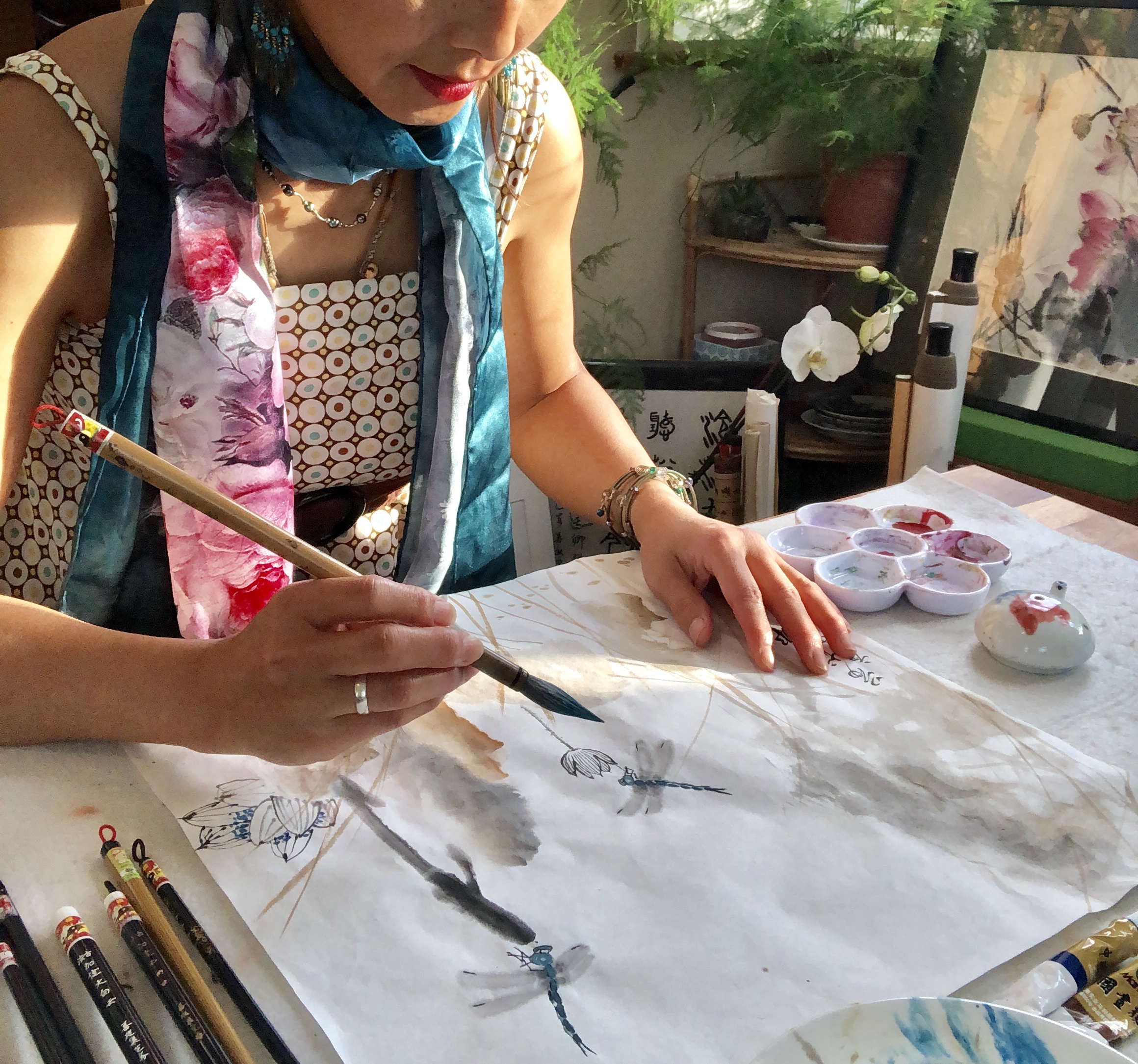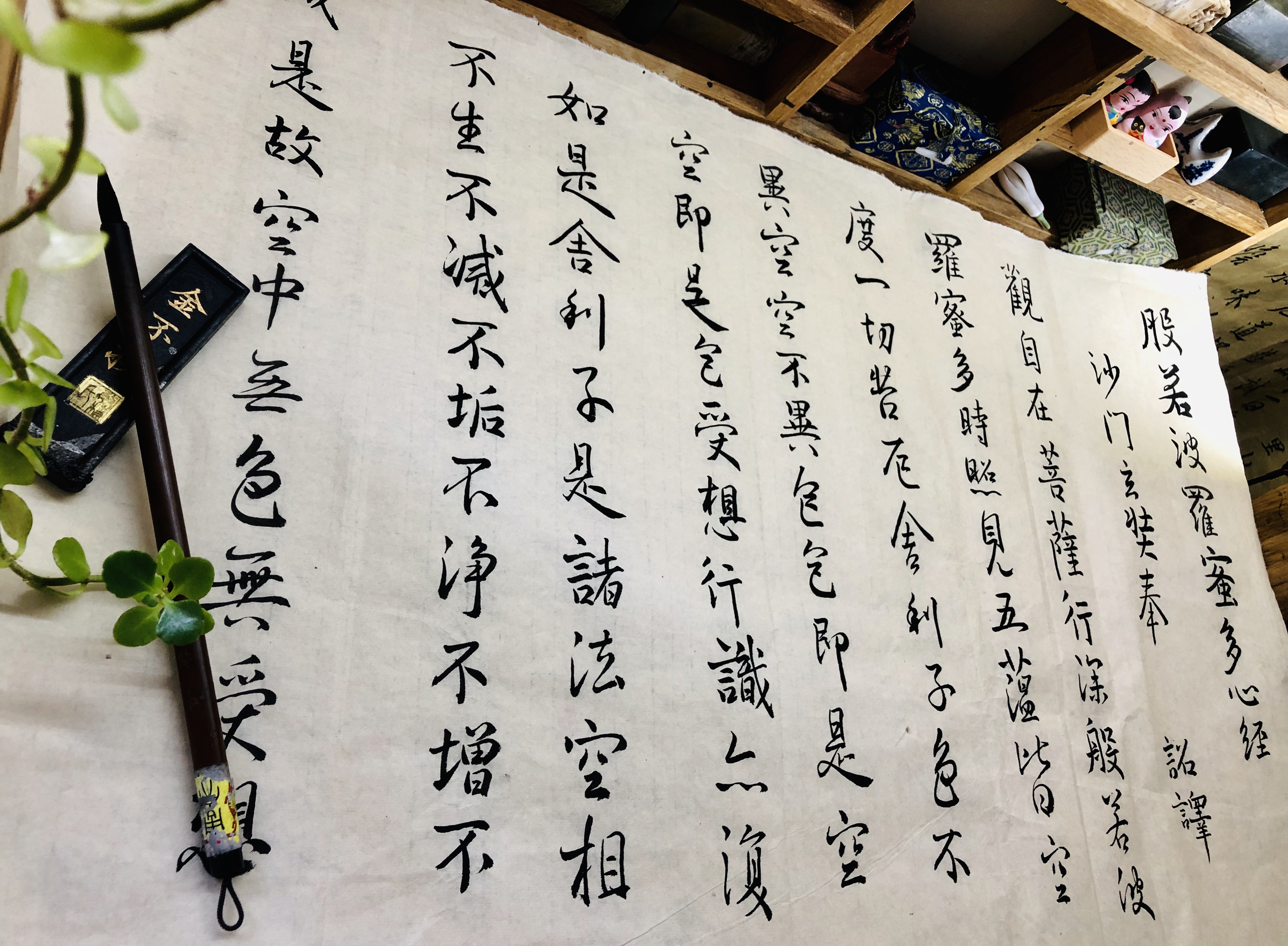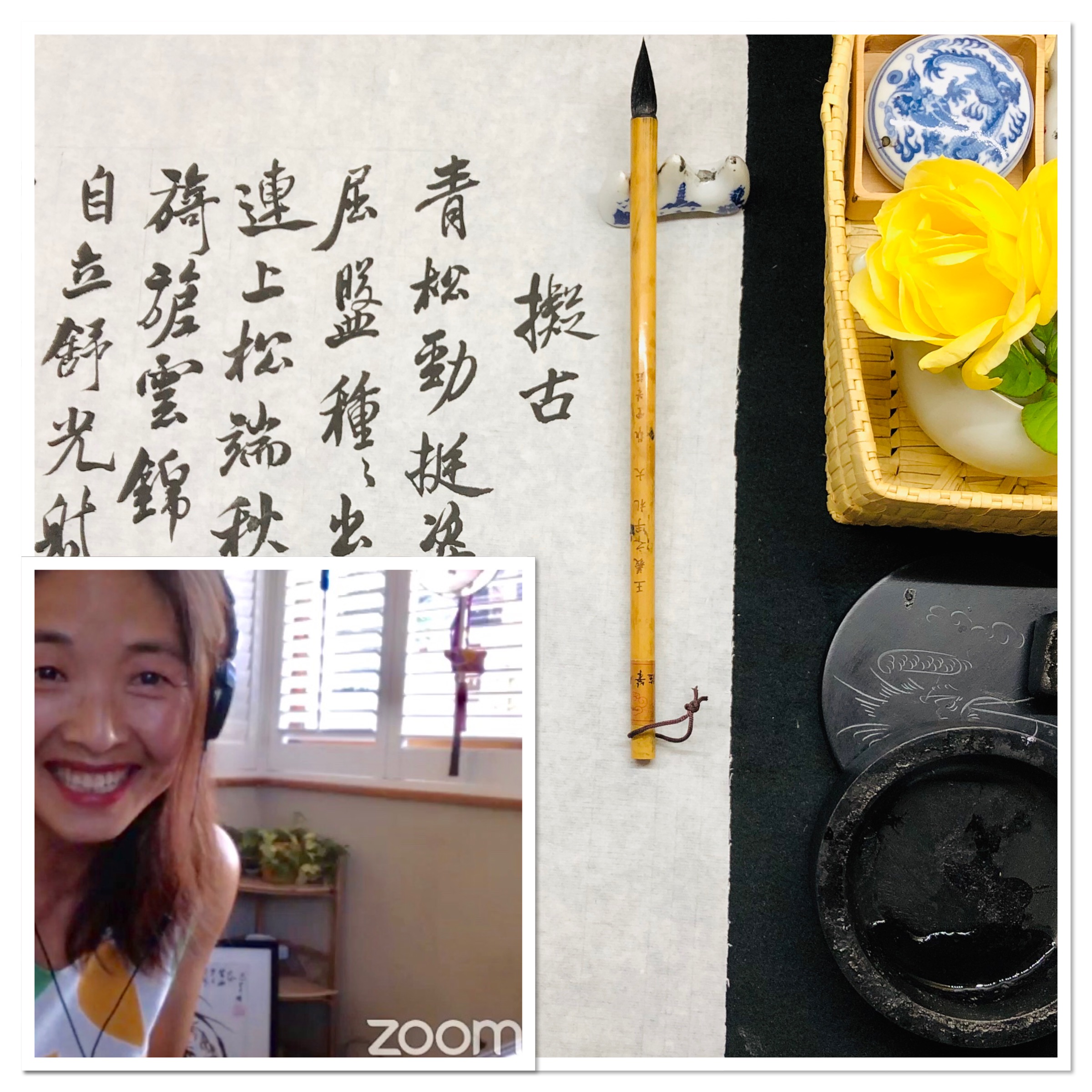I learnt that exploring the ancient arts of your culture can help you stay close to your roots. The pandemic inspired me to share this experience with others.

I was born in Xingyi, not far from China’s south-western border with Vietnam. One of my earliest memories is of watching my father at his calligraphy practice. When I told him that I loved the smell of the ink on the rice paper, and the way he moved his hand, he stopped writing, asked me to sit next to him and showed me how to hold the bamboo brush.
This peaceful scene was my introduction to the ancient arts of China.
For many years, I drifted away from these traditions. My career as an interpreter and project manager led me to Hong Kong, Japan and eventually England. It was here that I met my partner and had our son.
But when he was just a year old, I was made redundant. At this same time, I was hit by ill health and needed three major operations. Not long after, my father passed away. I felt lost, and questioned who I was.
It was at this lowest ebb that I felt drawn back to my Chinese roots.
I began reading about the highly educated ‘literati’, or ‘scholar-officials’, of ancient China. Exploring their philosophical works, I was inspired to pick up my calligraphy brushes. As my confidence grew, I moved into Chinese painting. Learning this beautiful art form sparked a creativity that I had forgotten was within me.
Chinese art has become my way of life. I paint in the ancient freestyle, but with modern composition. I sell my work, online and through exhibitions, as well as giving live demonstrations. I may be thousands of miles from home, but I feel deeply rooted in my culture.
During lock down, I wanted to do something to help the local Chinese community. I began offering free online workshops in calligraphy and brush painting, to allow them a creative escape. In the first session, I guided them to write Heart of Sutra. I soon realised that it provided much more than that.

The participants – all female – told me that the sessions were the highlight of their week. They immersed themselves in Chinese art, and practised skills they thought they’d left behind. Rather than feeling isolated, they felt more connected than ever. And more than that, they learnt to set boundaries with their families so they could have this peaceful time for themselves.
The experience was transformative for all of us. Many of my students have continued to paint ever since.
And, propelled by this pandemic, I’ve discovered that my ultimate joy is found in keeping these ancient skills alive by passing them on to others.


